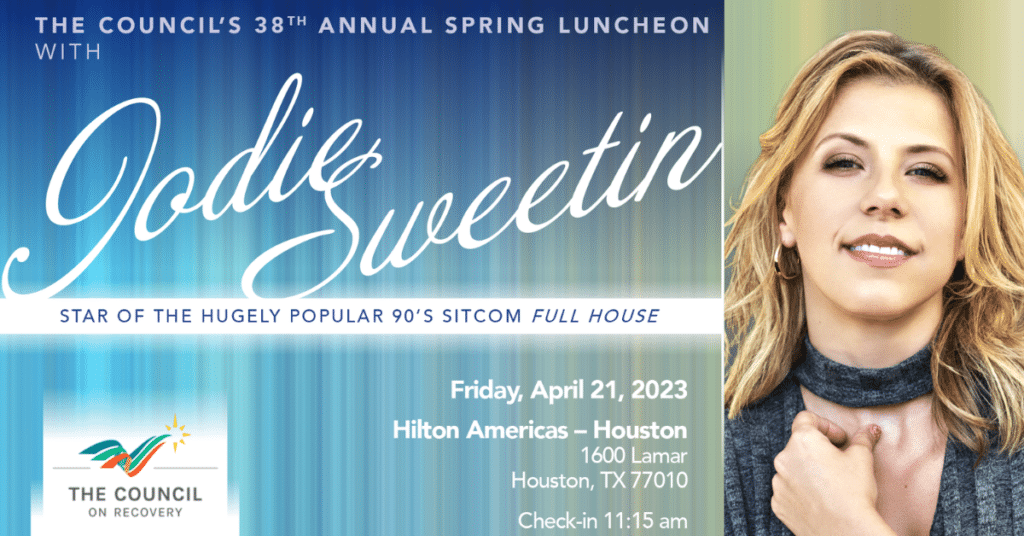The Council on Recovery is excited to welcome Jodie Sweetin to Houston as the keynote speaker for our 38th Annual Spring Luncheon! Actress, producer, host, author and activist Jodie Sweetin garnered the love of millions in her role as Stephanie Tanner on ABC’s long-running, hugely popular sitcom “Full House” and the widely popular Netflix spinoff “Fuller House.”
She previously pulled double duty as co-Executive Producer and star in the rom-com Just Swipe and just wrapped production on “Craft Me a Romance” where she once again stars and serves as co-Executive Producer. Jodie also co-hosts the popular parenting podcast “Never Thought I’d Say This,” which is currently in its fifth season. She is a published author of her memoir UnSweetined, in which she chronicles her struggle with substance use disorder until becoming sober more than a decade ago. She is now a passionate advocate for substance use prevention among youth and young adults.

Since its inception 40 years ago, The Council’s speaker series has promoted a message of hope and healing, and helped to reduce the shame and stigma of substance use and related disorders in the Houston community and beyond. The Council provides treatment and recovery support to individuals affected by substance use and other co-occurring mental health conditions, regardless of their ability to pay. Funds raised through our annual luncheons ensure that no family in need is ever turned away.
For more information about our Speaker Series, visit our speaker series website. Tables and individual tickets will be sold at a later date.
